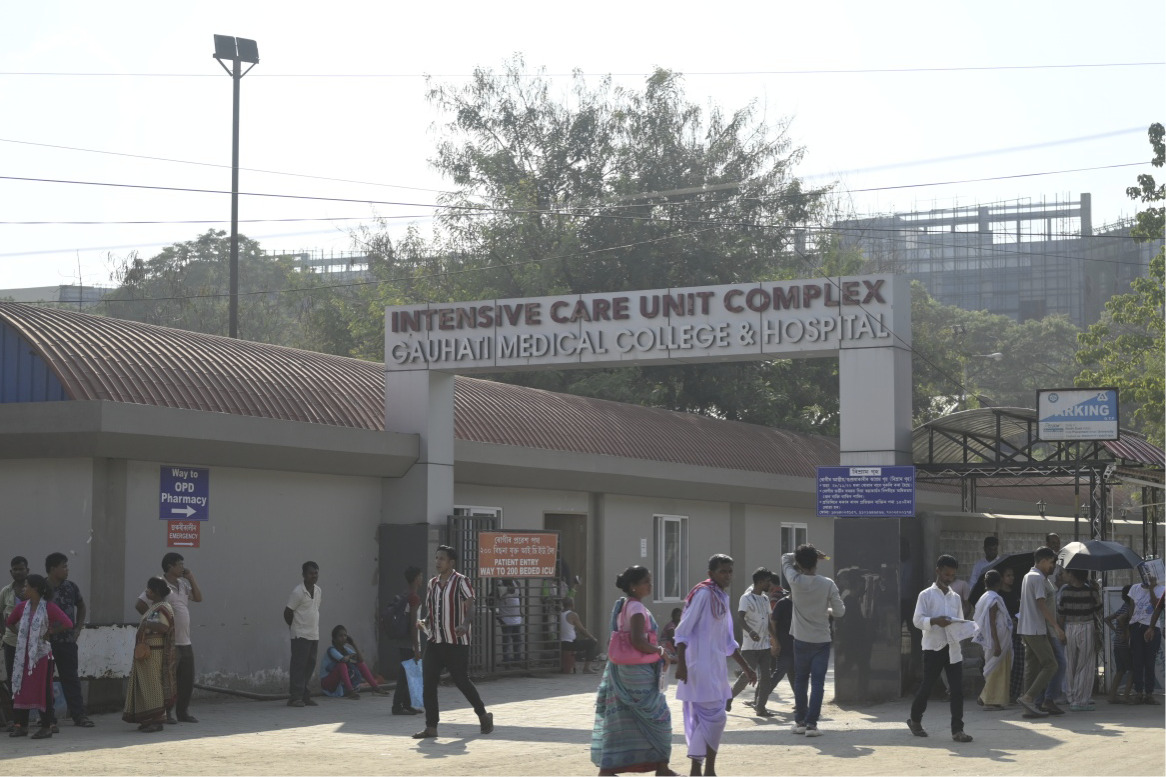Health
Experts Decry Protocol Violations After Newborn’s Death at GMCH

The tragic death of a newborn at the Gauhati Medical College and Hospital (GMCH) has raised serious concerns about protocol violations within the institution’s Neonatal Intensive Care Unit (NICU). Experts have indicated that multiple infants were placed in a single cot, a direct breach of the established guideline that stipulates one baby per cot.
According to child specialists, this violation not only compromises the care provided to each infant but also poses significant health risks. Dr. JN Sarma, a prominent child specialist and former Head of the Paediatrics Department at GMCH, emphasized that the primary purpose of the NICU is to provide specialized care for seriously ill infants. He stated, “If two or more babies are kept in one cot, the very purpose of keeping babies in NICU would be defeated.”
A critical aspect of NICU care involves using phototherapy for babies suffering from jaundice, which requires precise light exposure. Dr. Sarma noted that placing multiple infants in one cot disrupts this essential treatment, ultimately jeopardizing their health. The risk of infection transmission also escalates when several babies are housed together, further complicating their care.
Dr. Sarma highlighted that newborns cannot roll over, making it unlikely for a baby to fall from a cot due to being pushed by another. Instead, he pointed out that a lack of adequate nursing staff is a more significant concern. He mentioned that there should ideally be one nurse for each baby, but GMCH often struggles with nurse shortages. “If there was only one nurse on duty in a room with around 30 babies, it was a total breach of protocol,” he added.
Systemic Issues Contributing to Overcrowding
Another expert, Dr. Partha Pratim Bora, echoed these sentiments, stating that the standard practice in NICUs is to maintain one baby per cot. He argued that one nurse should care for no more than four babies simultaneously due to the constant attention infants require. Dr. Bora criticized the systemic overcrowding at GMCH, which he believes contributed to the recent incident.
He remarked, “The system needs to be changed. The problem in GMCH is overcrowding, and patients should be sent to other medical college hospitals.” While several new hospitals have been established in Assam, many still direct patients to GMCH, exacerbating the issue. Dr. Bora pointed out that other hospitals have policies limiting admissions to their bed capacity, unlike GMCH.
The situation at GMCH has persisted for years, with overcrowding being a long-standing issue. Dr. Bora suggested that the state should take inspiration from hospitals outside Assam that have dedicated NICU facilities and strict admission policies.
In light of these tragic events, experts are calling for immediate reforms in the healthcare system to ensure that protocols are adhered to and that vulnerable patients are provided with the care they need. The health and safety of newborns depend on the implementation of these critical guidelines, which are designed to protect the most fragile members of society.
-

 World5 months ago
World5 months agoSBI Announces QIP Floor Price at ₹811.05 Per Share
-

 Lifestyle5 months ago
Lifestyle5 months agoCept Unveils ₹3.1 Crore Urban Mobility Plan for Sustainable Growth
-

 Science4 months ago
Science4 months agoNew Blood Group Discovered in South Indian Woman at Rotary Centre
-

 World5 months ago
World5 months agoTorrential Rains Cause Flash Flooding in New York and New Jersey
-

 Top Stories5 months ago
Top Stories5 months agoKonkani Cultural Organisation to Host Pearl Jubilee in Abu Dhabi
-

 Sports4 months ago
Sports4 months agoBroad Advocates for Bowling Change Ahead of Final Test Against India
-

 Science5 months ago
Science5 months agoNothing Headphone 1 Review: A Bold Contender in Audio Design
-

 Top Stories5 months ago
Top Stories5 months agoAir India Crash Investigation Highlights Boeing Fuel Switch Concerns
-

 Business5 months ago
Business5 months agoIndian Stock Market Rebounds: Sensex and Nifty Rise After Four-Day Decline
-

 Sports4 months ago
Sports4 months agoCristian Totti Retires at 19: Pressure of Fame Takes Toll
-

 Politics5 months ago
Politics5 months agoAbandoned Doberman Finds New Home After Journey to Prague
-

 Top Stories5 months ago
Top Stories5 months agoPatna Bank Manager Abhishek Varun Found Dead in Well









